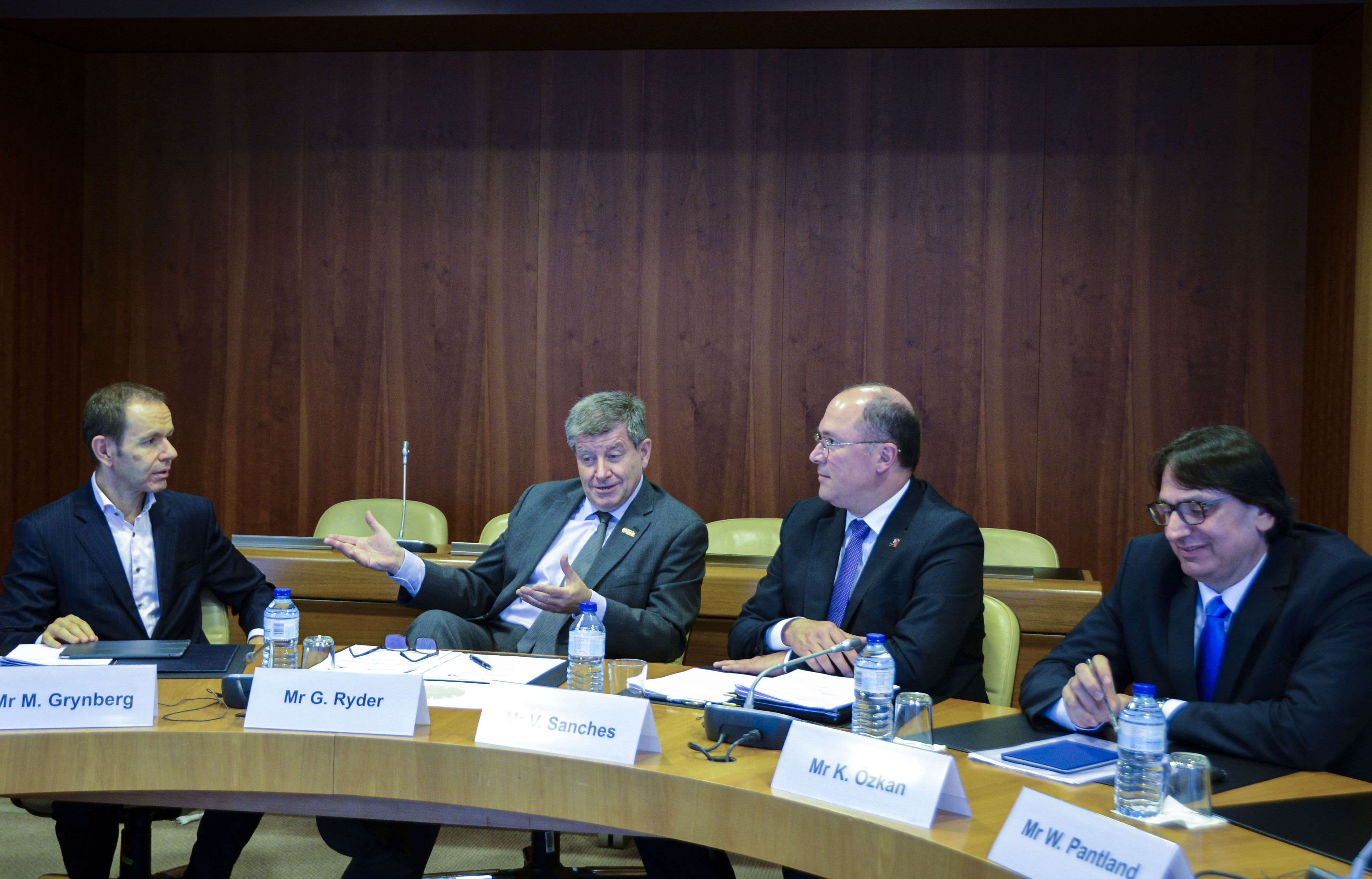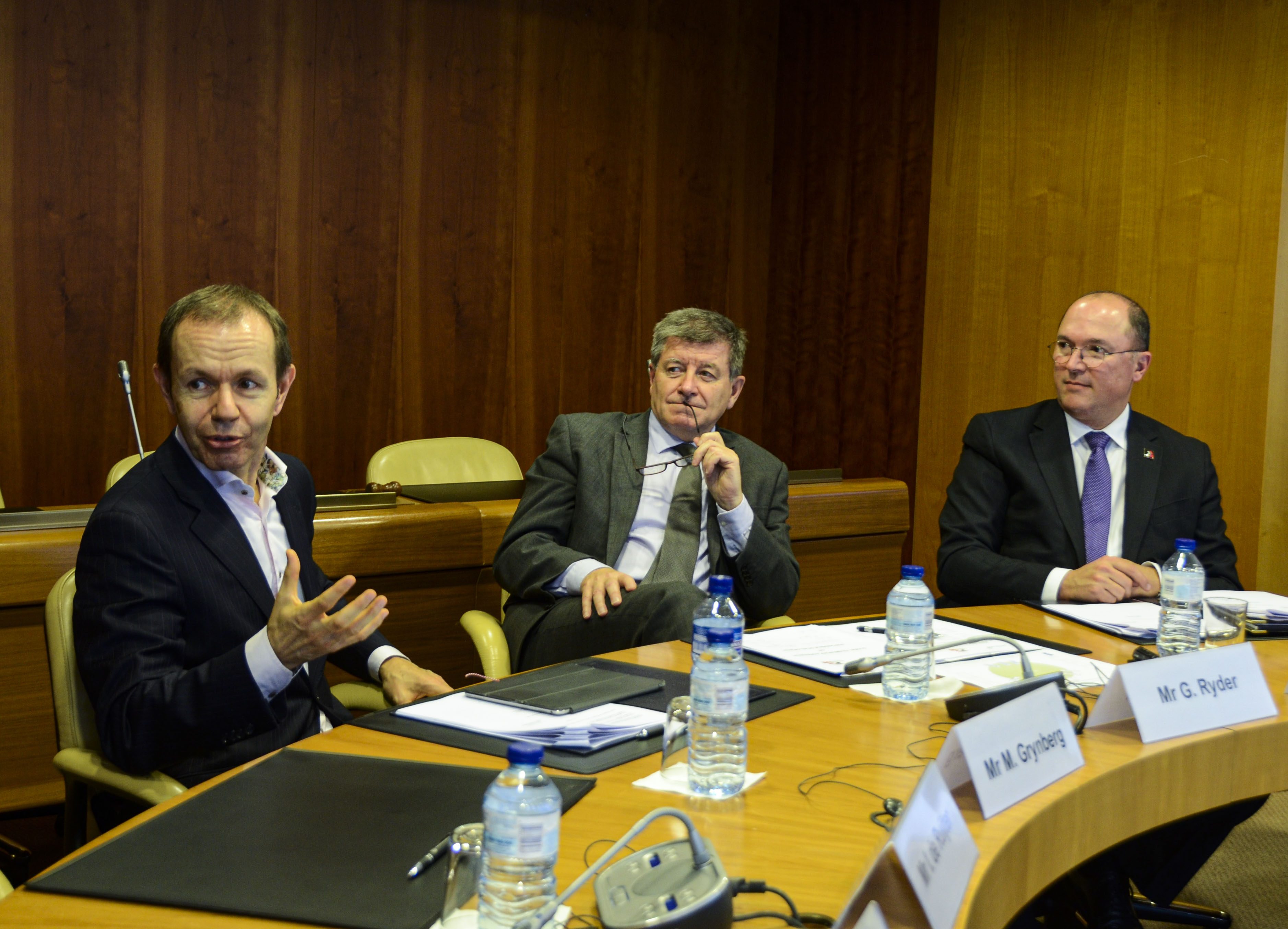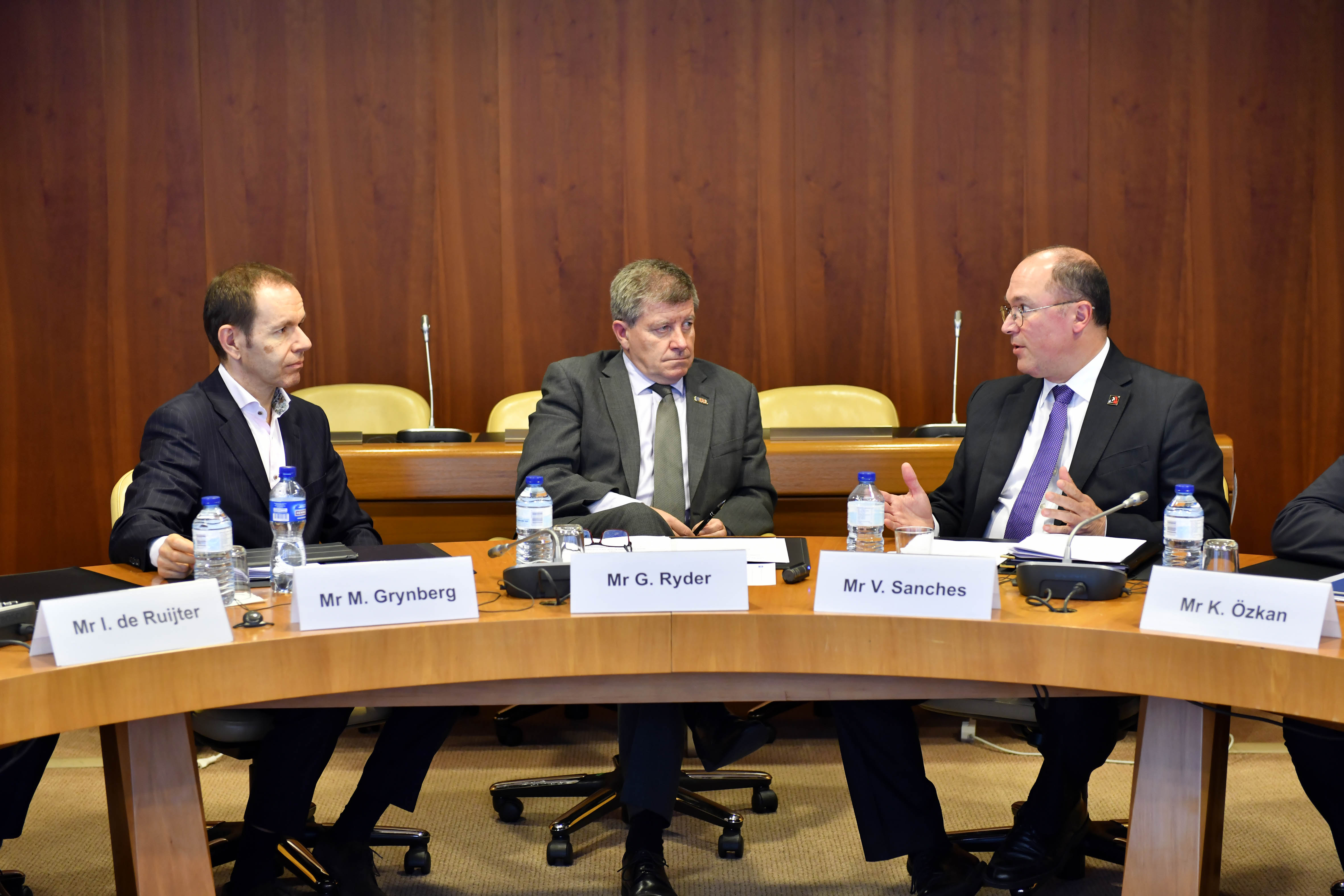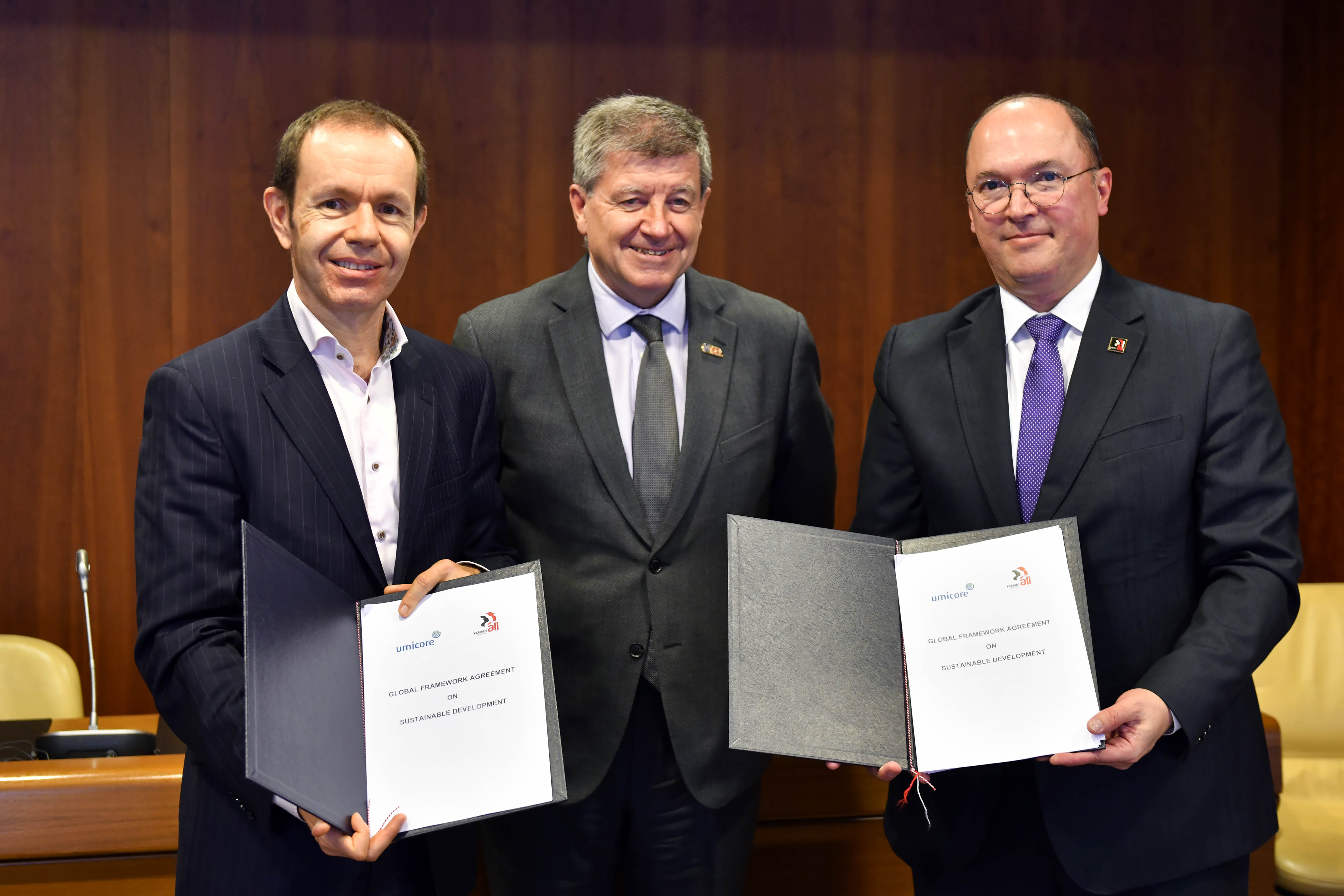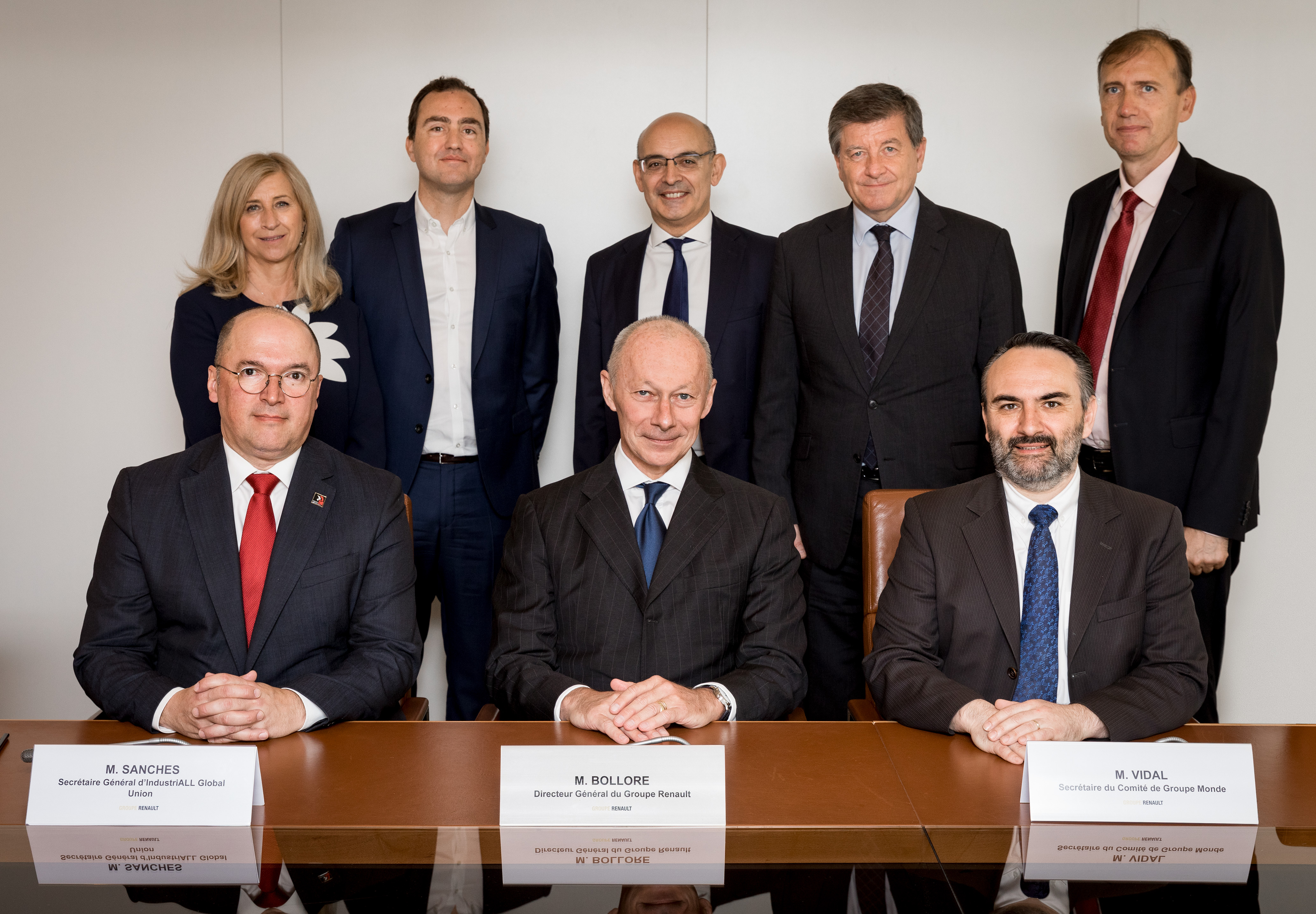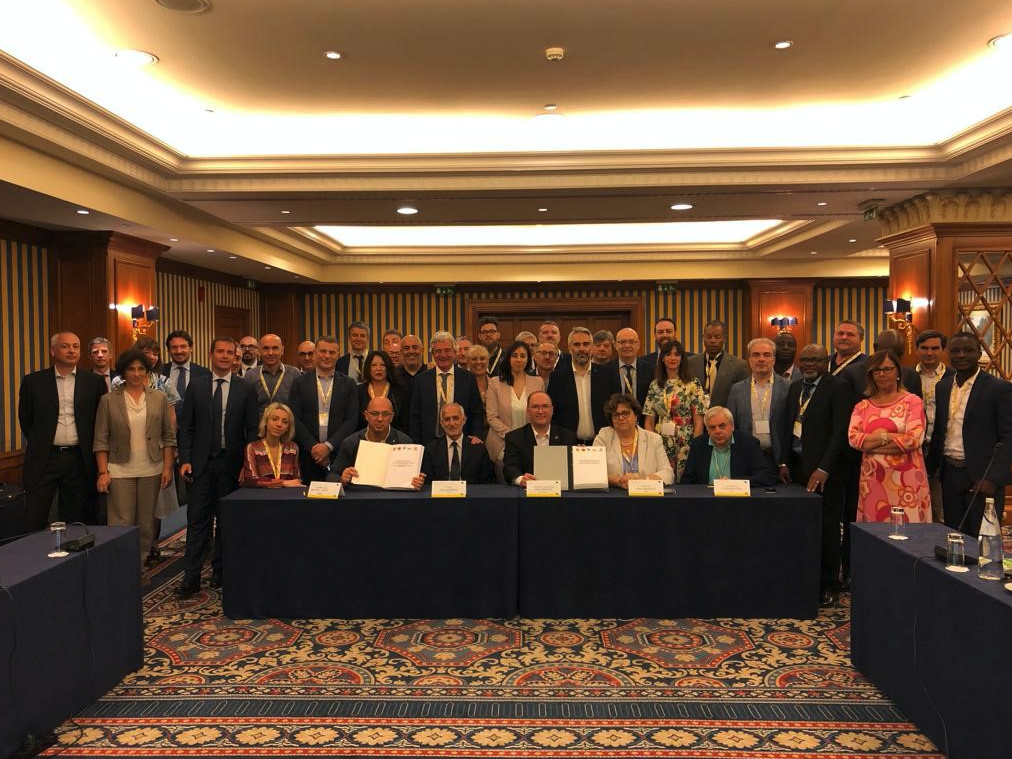“An attack on one, is an attack on all,” said IndustriALL President Jörg Hofmann in his opening statement.
“We need to make sure that as many people as possible benefit from global solidarity, which we know can make a difference against global capital.”
During the two days of meeting, union leaders discussed a global response to challenges ahead, in a world where regimes attack opponents, its citizens and unions, like in Brazil and Algeria, or Colombia where Igor Diaz from Sintracarbón is receiving death threats.
Delegates listened to a testimony from USW Métallos in Canada, whose 1,000 members in Bécancour, Québec, have been locked out from work at the Alcoa plant for nearly 17 months after the company refuses to negotiate.
Volkswagen workers in, Chattanooga, Tennessee, US, are still being denied the right to join a union, which led IndustriALL to suspend a global framework agreement (GFA) for the first time.
Confronting global capital is a strategic goal and key in advancing workers’ rights. The 46 GFAs signed by IndustriALL and multinational companies are important tools in developing industrial relations on a global level, as the example of how the GFA with Solvay resolved an issue over bonuses at the company’s operations in India shows.
Currently, negotiations are ongoing with a major global auto company over an agreement on the future of work, providing an opportunity to respond to the huge transformation in the world of work and put Just Transition on the agenda.
The ILO Global Commission on Future of Work examines how to achieve a better future work for all at a time of unprecedented change. Participants shared experiences and discussed the need for a strategy on a global level for the labour movement, as not all countries are as technologically advanced.
Acknowledging the need to exchange experiences, the Executive Committee endorsed the work to continue and:
- Encouraged affiliates to follow up the ILO report
- Committed to work with multilateral agencies in influencing actions and decisions for IndustriALL members on the ground
- Committed to seek and demand contractual commitments from the companies handling the transformation around Industry 4.0
- Committed to continue to deliver awareness raising and capacity building on regional and country, as well as sectoral and network levels
IndustriALL’s trade union guide to a Just Transition, focusing on an implementation in the interest of the workers formed the basis for a discussion leading up to a commitment to an exchange of information and expectations to form policies on Just Transition, and making sure workers have a say on the future of their industries.
Union building is a vital part of IndustriALL’s efforts to increase organizing and build union power. In 2018, 768 capacity building activities were held, with a staggering 23,000 participants.
- Union building projects have achieved land-mark victories like increased maternity leave in the Philippines.
- In Kenya, 135 health and safety committees have been established and have trained workers in more than 600 factories.
- Work on increasing ratification of the Hong Kong convention is advancing, with Turkey as latest addition. The number of signatory countries is now nine.
The Executive Committee approved affiliations from six new unions, adding 224,000 new members, adding to the fighting power and proving that we are stronger together.
IndustriALL’s Women’s Committee is planning a Women’s Conference later this year, in November. The Executive Committee reiterated its support for an ILO Convention on gender-based violence, a convention IndustriALL is fighting for together with other global unions.
More than 100 affiliated unions have so far adopted IndustriALL's Pledge to end violence against women in the workplace, a campaign that is continuing.
The two working groups on IndustriALL’s 3rd Congress, taking place in Cape Town in October 2020, have started preparations for bringing together union delegates from all over the world. Involvement from affiliated unions will be important for proposals on IndustriALL's action plan, priorities and structures.
IndustriALL’s Executive Committee adopted a number of solidarity resolutions:
Support for the Brazilian trade union movement
IndustriALL supports the general strike called for by the Brazilian trade union centres on 14 June, in the face of deteriorating labour legislation, social and trade union rights.
Resolution on Hyundai Heavy Industries’ Acquisition of Daewoo Shipbuilding and Marine Engineering in South Korea
IndustriALL is concerned about the lack of transparency in negotiations over the merger; restricting fair trade and competition is a significant threat to workers and unions along the supply chain of the shipbuilding industry.
Calling on South Korean government to stop regressive labour law revision and ratify ILO core conventions
These are basic human rights for workers, not bargaining chips for employers, and IndustriALL urges the South Korean government to show a sign of commitment.
All photos from IndustriALL Executive Committee can be found on Flickr.
